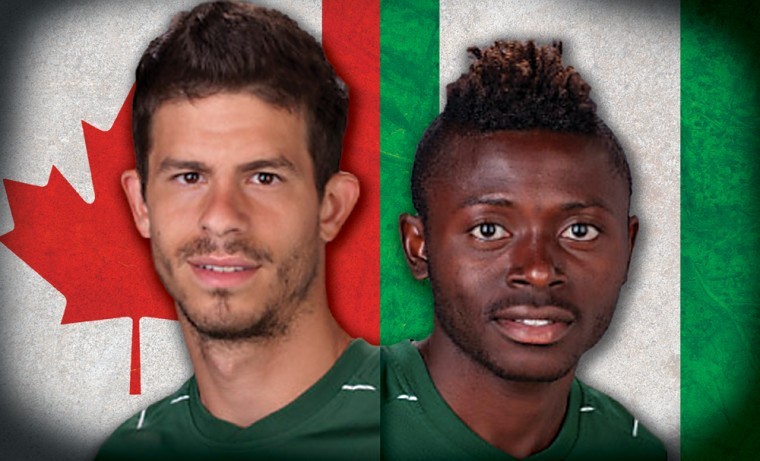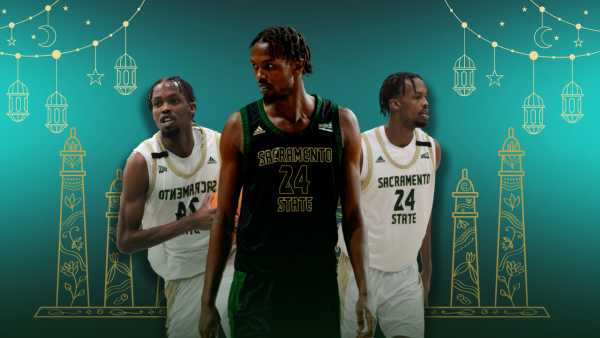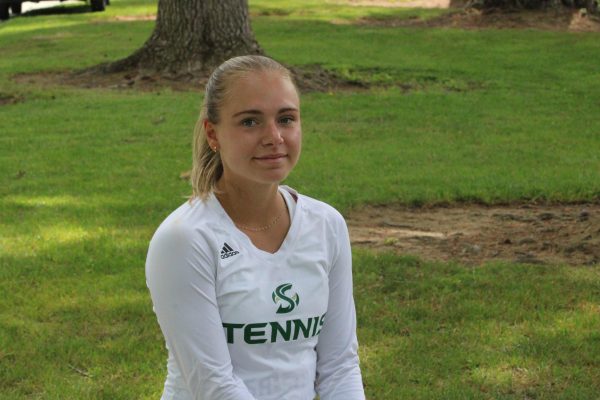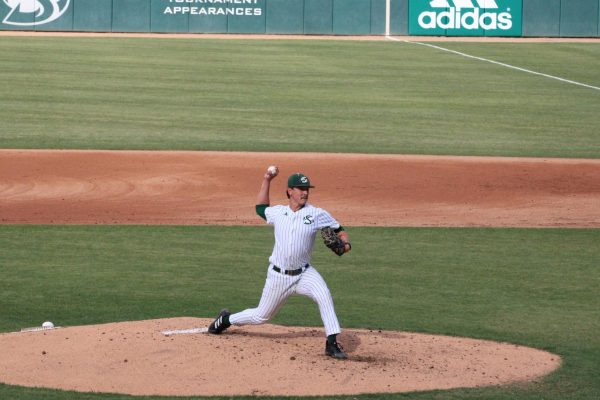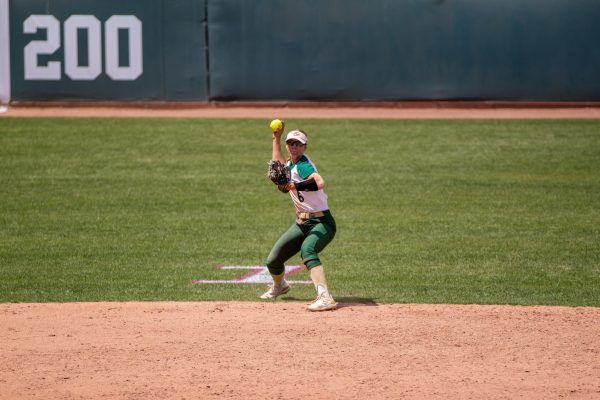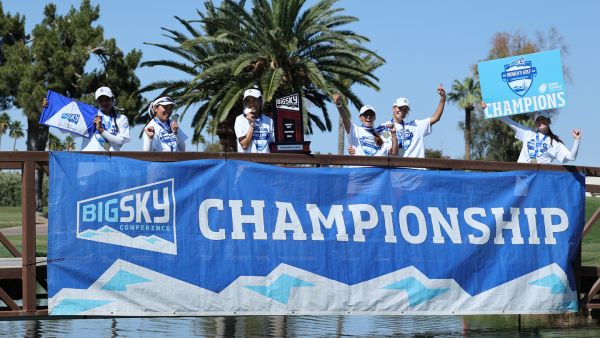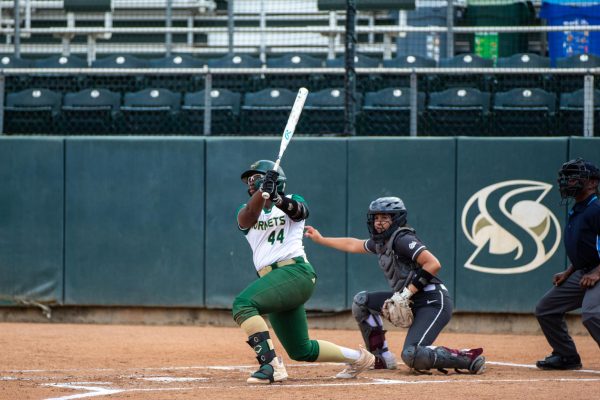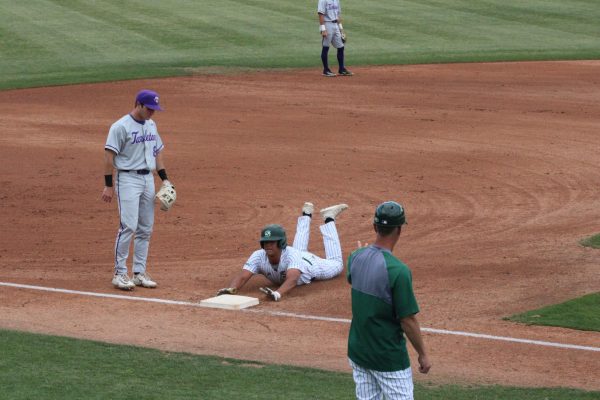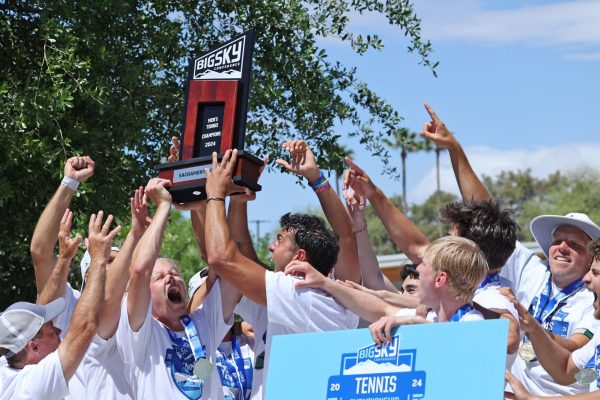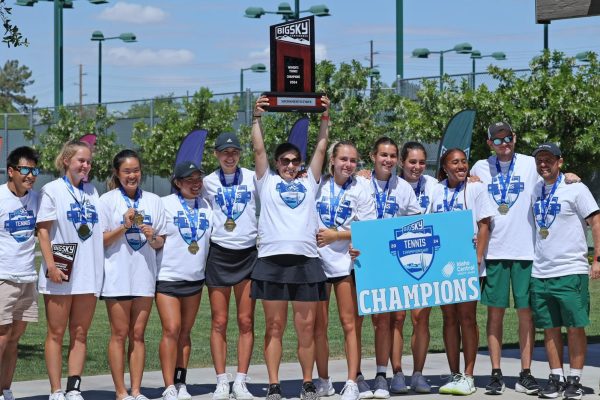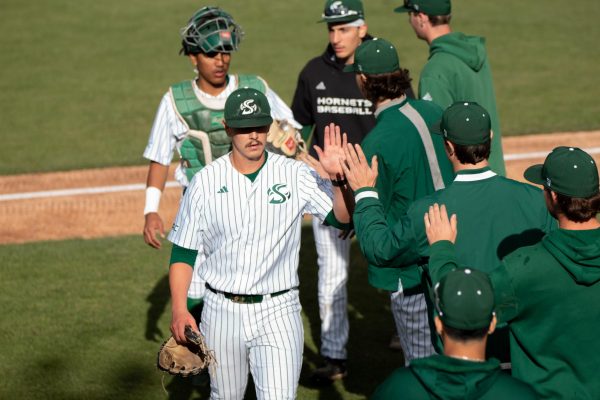International soccer players adjust to life in US
Eric Amato (Canada) and Isaac Ikyurav (Nigeria) are a few international student athletes that play for Sacramento State.
September 21, 2011
The Sacramento State soccer team added two international student athletes through the exchange program and recruiting.
One is midfielder Eric Amato, from Toronto, Canada. He is an exchange student from the University of Western Ontario. Amato is a junior at Sac State and is in his first semester.
The other international player is forward, Isaac Ikyurav, who is a sophomore and is in his second semester here. Ikyurav was born in Yola, Nigeria, and attended the first Western education styled school in Nigeria, the American University.
Ikyurav has been living here for nine years and recently moved from Southern California to Sacramento two years ago.
Ikyurav said the main difference in playing styles between Nigeria and here is that you rely more on strength in America.
“The emphasis is mostly on physical play,” Ikyurav said.
Amato said that one of the biggest adjustments he had to make was being able to adjust to a new sleeping routine. He also said that his stay at Sac State is just temporary.
“I’m only here for one semester,” he said. “I miss my girlfriend Sarah.”
Amato said he was well received when first arriving to the university. Everyone treated him well and the team welcomed with open arms. To help his transition into Sac State, he lived with two teammates.
“It was good. Everyone was kind,” he said. “I stayed with Adam (Bettencourt) and Cody (Shields). They helped smooth over the process.”
Ikyurav took a different approach. He was recruited by head coach Michael Linenberger during one of Sac State’s soccer camps last year.
“I went to a (soccer) camp and the coaches liked me,” Ikyurav said.
Sac State holds camps throughout the year. You have to be at least 14 years old to attend and pay a registration fee of $60. It’s also a chance for the coaches to scout players.
Linenberger said the recruiting process is a long one and involves more than just being able to kick a ball.
The team usually begins scouting players during their sophomore year in high school and they track them throughout their high school career. Linenberger said it involves communication and getting to know the player.
“We talk to the player, he meets with the team and watches us play; we also talk to their high school counselors,” he said. “It’s about are they good people (and) are they good students.”
Linenberger was asked if there was any hope of scouting internationally.
“Very little,” he said. “We primarily stay local, made up of mostly California guys.”
However, one of the things that impressed Linenberger about Ikyurav was that he had something special.
“He had something different,” Linenberger said. “ He has a little flair, he’s quick, fast and he can cross a good ball.”
Ikyurav attended the July 2010 camp at Sac State and first started training with the team in the spring of 2011.
Although Ikyurav’s playing time has been limited, Linenberger said they are carefully working with him to adjust to training hard every day – seeing as he played mostly street soccer in Nigeria.
“As the season goes on, he’ll get more minutes,” he said. “ He will have two more years left of eligibility, and hopefully he can be an impact player for us.”
Amato said one of the reasons he transferred to Sac State was to play at a higher level of competition.
“I wanted to play Division I soccer (and) Sac State was the only partner university in the U.S. with my home University of Western Ontario,” he said.
Ikyurav said that Sac State is similar to his hometown university.
“Different class names, but the same setup,” he said.
Judging from the school’s official website, it looks like any other school or college one would find here. He said adjusting to Sac State, school wise, wasn’t too much of a problem.
They were also asked if soccer was a big sport in their respective countries and how they felt about the game not having too much popularity here in the United States.
“No, ice hockey is. I’m a big Maple Leafs fan,” Amato said. “But to be honest, they care more about it here. It’s more organized.”
It was a different case with Ikyurav as soccer is the national sport with most African countries, including Nigeria.
“It’s more of a major sport in Nigeria,” Ikyurav said. “ Over there it’s very big, but here other sports come first.”
Daniel Morales can be reached at [email protected].


























































































































